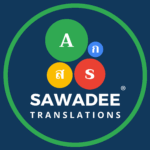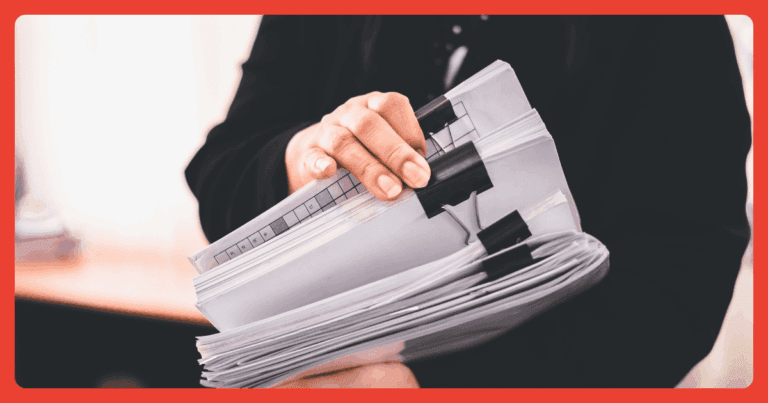
Table of Contents
If you’re an expat getting married, a professional applying for a work permit, or a student heading abroad, you’ll inevitably encounter a crucial bureaucratic step in Thailand: document legalization at the Ministry of Foreign Affairs (MFA). This official process can seem intimidating, but with the right preparation, it’s a straightforward path.
This guide provides a detailed, step-by-step walkthrough of how to prepare, submit, and collect your documents at the MFA’s Department of Consular Affairs, complete with on-the-ground tips to ensure a smooth and successful visit.
1. What is MFA Legalization & Why Do I Need It?
Legalization is the process where a government body officially verifies that the signature and seal on a document are authentic. The MFA doesn’t check the content of your document; they confirm that the person who signed it (e.g., a university registrar, a district officer, or a foreign embassy consul) is a legitimate authority.
💡 Think of the MFA as a “super notary.” They are authenticating the authenticator, giving your document the official stamp of approval from the Thai government so it can be recognized legally.
There are two main reasons you’ll need this service:
- “Inbound” Legalization: Making a foreign document valid for use inside Thailand. (e.g., legalizing an embassy-issued marriage affidavit before submitting it to a Thai district office).
- “Outbound” Legalization: Making a Thai document valid for use outside Thailand. (e.g., legalizing a Thai university degree so it can be accepted by a foreign government for a visa).
👉 For background, see our Certified vs. Legalized Translations Guide.
2. The Step-by-Step Guide to a Day at the MFA
The entire process takes place at one main location in Bangkok. Follow these steps for a hassle-free experience.
Step 1: The Preparation Phase (Do This at Home)
Perfect preparation is key to avoiding a wasted trip. Gather your complete document packet:
✅ The Original Document: The actual birth certificate, diploma, affidavit, etc.
✅ Certified Translation (if applicable): If your original document is not in Thai, it MUST be translated into Thai by a certified translator first. The MFA will legalize both the original and the translation together.
✅ Photocopies: One clear copy of the original document and one copy of the certified translation.
✅ Identification Copies: A signed photocopy of your passport (photo page) or Thai ID card. You must sign every copy!
✅ Application Form: You can download this from the Department of Consular Affairs website and fill it out in advance to save time.
📌 Related: Top 10 Documents That Require Certified Translation in Thailand.

Need Certified or Legalized Translations for MFA or Embassy Use?
Our native translators and legalization team handle everything for you.
Get in Touch >
Step 2: Getting There & The On-Site Process
- Location: Legalization Division, 3rd Floor, Department of Consular Affairs, 123 Chaeng Watthana Road, Lak Si, Bangkok.
- Operating Hours: Monday–Friday, 08:30 – 15:30 (closed on public holidays).
- The On-Site Experience:
- Arrive Early: Queues can be long, especially on Mondays. Aim to arrive by 08:30.
- Get a Queue Ticket: Take a numbered ticket from the machine at the entrance to the Legalization Division.
- Submit Your Packet: When your number is called, present your complete document packet (originals, copies, translations, ID, application form) to the officer.
- Payment: The officer will check your documents and give you a payment slip. Take this to the payment counter and pay the fee in cash.
- Get Your Receipt: You will receive an official receipt with a collection date and time. Do not lose this!
Step 3: Choosing Your Speed: Fees & Processing Times
You have two options for processing your documents.
| Service Type | Fee per Stamp | Processing Time |
|---|---|---|
| Standard Service | 200 THB + 200THB for the translation | 2 full business days (e.g., submit Monday, collect Wednesday). |
| Express Service | 400 THB + 400 THB for the translation | Same day (if submitted before 11:00 AM) or next business day. |
Step 4: Collecting Your Legalized Documents
Return to the same office on the date and time specified on your receipt. Go to the collection counter, present your receipt and ID, and you will receive your documents, which will now bear the official MFA stamp, sticker, and signature, making them legally recognized.
3. Pro-Tips & Common Mistakes to Avoid
⚠️ The “Chain of Command” Error: Foreign documents (like a Power of Attorney or a university degree) often need to be authenticated by your country’s embassy in Bangkok before you can take them to the MFA. Always check your embassy’s requirements first.
⚠️ The Translation Blunder: The MFA will reject any foreign language document that is not accompanied by a translation from a recognized, certified translator. An amateur translation is not acceptable.
⚠️ The Timing Mistake: Arrive before lunch. The office is busiest in the morning, and the cut-off time for express service is usually around 11:00 AM.
⚠️ The Photocopy Fail: Forgetting to sign your passport or ID card copies is a common reason for rejection. Sign every single copy you submit.
✅ Bring Cash: While other payment forms may be available, cash is always accepted and is the most reliable option for paying the fees.
👉 See also: Marriage in Thailand for Foreigners.
Frequently Asked Questions (FAQs)
Can someone else submit my documents for me?
Yes. You can authorize a representative (a friend, family member, or agent) to submit and collect on your behalf. You must provide them with a signed Power of Attorney, a signed copy of your passport/ID, and they must present their own ID.
Can I do this process by mail?
Yes, the MFA does offer a postal service for those living outside of Bangkok. However, it is significantly slower (expect 1-2 weeks plus mailing time) and requires you to send your original documents. In-person submission is highly recommended for speed and security.
How long is the MFA legalization stamp valid for?
The MFA legalization stamp itself does not expire. However, the underlying document it is attached to might have a period of validity (e.g., a Police Clearance Certificate is typically only considered current for 3-6 months by the authority requesting it).
Conclusion
MFA legalization is a formal but manageable process. The key to success is meticulous preparation. By ensuring you have the correct originals, certified translations, and signed copies before you even leave for Chaeng Watthana, you can navigate the system efficiently and avoid frustrating delays.
Getting your documents in perfect order is the most important step, ensuring they are accepted without issue by embassies, immigration, and other authorities in Thailand and around the world.

Need Certified or Legalized Translations for MFA or Embassy Use?
Our native translators and legalization team handle everything for you.
Get in Touch >
Share this post:
This post was last updated October 2025.







